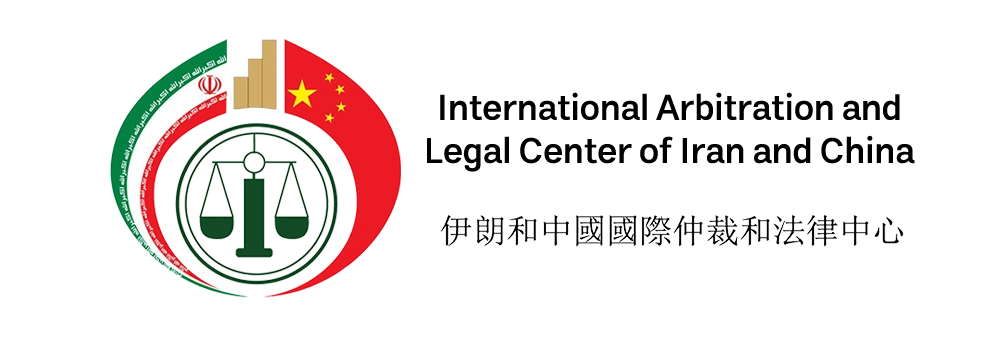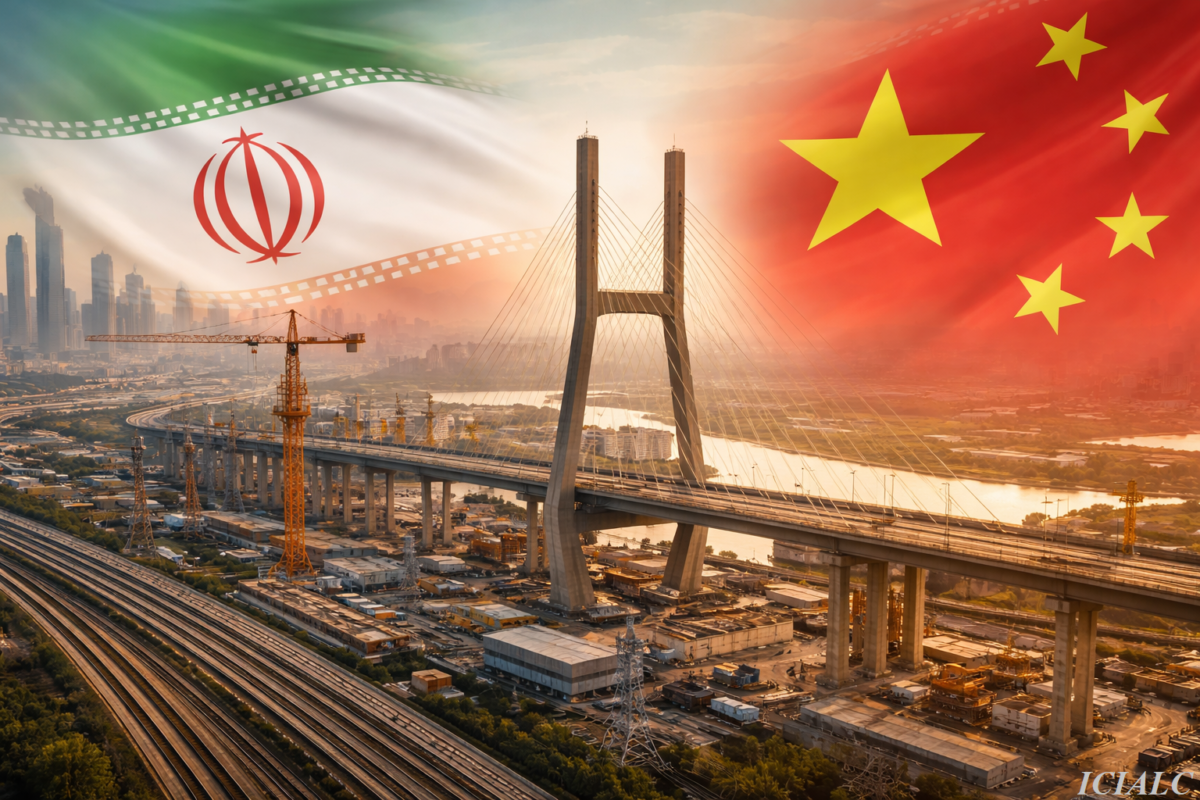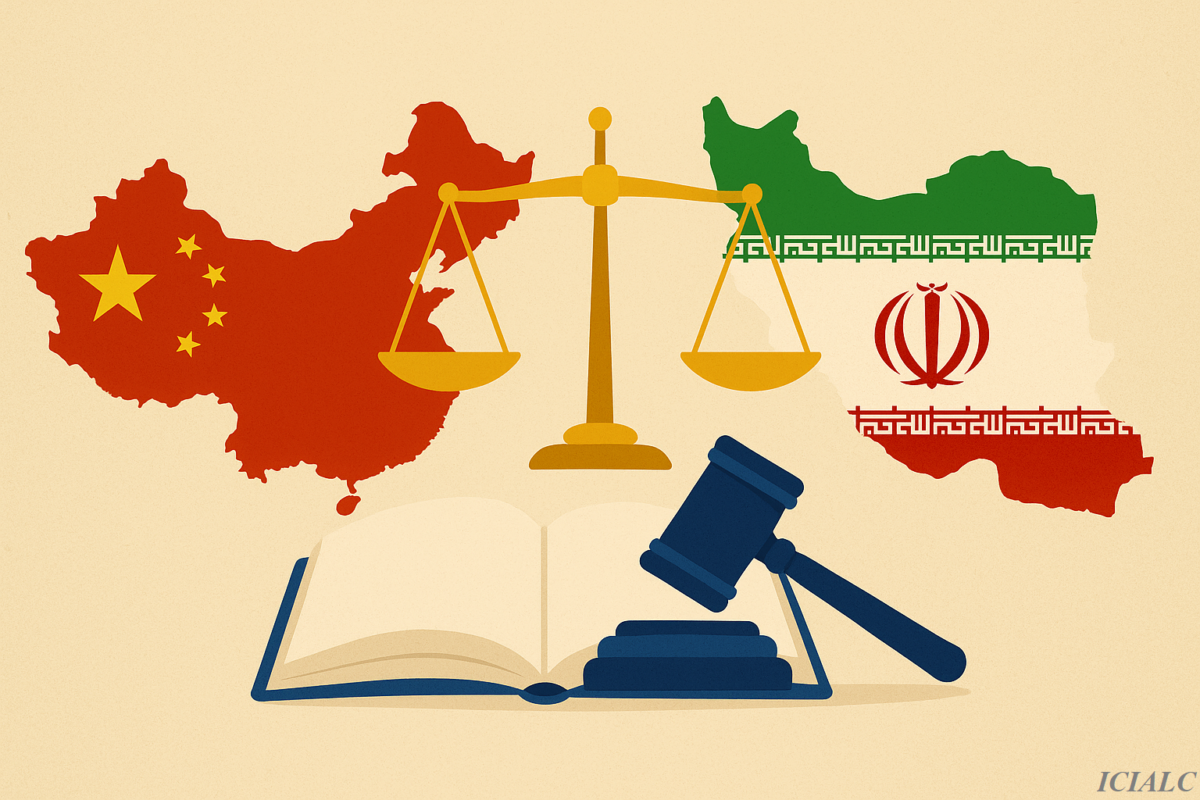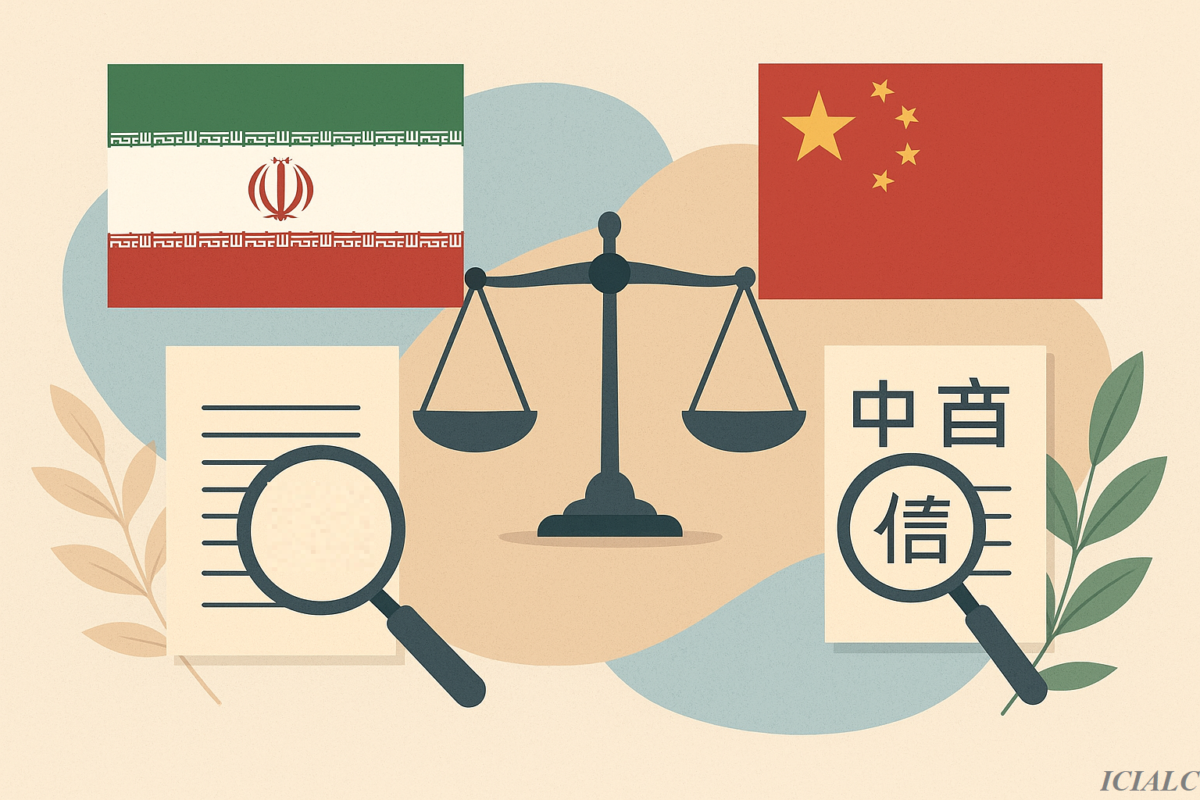In recent decades, trade relations between Iran and China have witnessed remarkable growth. This cooperation has expanded not only in the energy and raw materials sectors but also across a wide range of areas such as maritime transportation, infrastructure, technology, and industrial products. According to official statistics, in recent years, China has ranked first or second among Iran’s largest trading partners, and many Iranian and Chinese companies have initiated long-term and multi-faceted collaborations.
However, the expansion of these economic relations, particularly within the complex arena of international trade, is accompanied by specific challenges. As the volume of transactions and variety of projects increase, so too does the likelihood of commercial disputes. Experience has shown that a significant portion of such disputes stems not from the bad faith of the parties, but from ambiguities, deficiencies, or conflicts in the contractual terms. For instance, failure to clearly define payment conditions or product quality standards can lead to costly and protracted disagreements.
A precise and transparent commercial contract plays a pivotal role in preventing such problems. In addition to outlining the framework for cooperation and the division of responsibilities, such contracts should anticipate clear and reliable mechanisms for resolving potential disputes. In the context of Iran–China relations, the importance of this matter is even greater, as the parties must contend not only with legal and cultural differences but also with the constraints of sanctions, banking difficulties, and the complexities of international transportation.
This article draws upon practical experience and international legal standards to examine the most critical contractual clauses in Iran–China trade agreements clauses whose careful inclusion can minimize the risks of disputes and pave the way for sustainable, successful cooperation.
Why Preventing Disputes in Iran–China Contracts Is Essential

International trade, especially between two countries with different legal, economic, and cultural systems such as Iran and China presents both unique opportunities and challenges. In recent years, the high volume of goods and services exchanged between these two countries has made economic cooperation ever more complex, ranging from infrastructure projects and oil and gas contracts to agricultural exports and the import of industrial machinery.
Despite these opportunities, experience indicates that many commercial disputes between Iranian and Chinese companies arise not from the ill intentions of either party but due to incomplete contracts or ambiguous provisions. When contractual clauses are not drafted clearly and precisely, even a minor disagreement can escalate into a complex legal case. In Iran–China relations, this risk is further heightened by the geographic distance between the parties and the differences in legal systems, cultures, and languages.
Moreover, other factors such as sanctions-related restrictions, currency and banking challenges, and the logistical complexities of international transport mean that any ambiguity or omission in a contract can quickly evolve into a genuine crisis. Resolving such crises, whether through domestic courts or international arbitration bodies, is usually time-consuming, expensive, and potentially damaging to the commercial relationship.
For this reason, preventing disputes is not merely a recommendation but a necessity in drafting Iran–China trade contracts. This prevention is only achievable through the accurate and professional formulation of contractual clauses that clearly specify duties, responsibilities, performance conditions, and even dispute resolution mechanisms from the outset. The following section examines the most important clauses that can play a decisive role in avoiding disputes.
Key Clauses to Prevent Disputes

Given that cultural, legal, and linguistic differences in Iran–China trade can create fertile ground for misunderstandings and disputes, the inclusion of specific, preventive clauses in contracts is of exceptional importance. These provisions not only clarify the cooperation framework but also function as proactive tools to mitigate legal or financial risks. A well-drafted contract, like a precise map, charts the course of the cooperation and ensures that in various circumstances, both parties have clear references and solutions for potential issues.
– Clause on Identification of the Parties and Obligations
The first and arguably the most important section of any contract is the accurate identification of the contracting parties. This part must include complete, authoritative details: the full legal name of each party (individual or corporate), company registration number, registered office address, contact numbers, official email addresses, and the details of duly authorized representatives with signing authority.
In Iran–China transactions, the importance of providing such information is heightened due to differences in company registration systems and official documentation.
In addition to identification, the duties, responsibilities, and commitments of each party must be explicitly stated. For example, if the Iranian party is responsible for obtaining import licenses and the Chinese party for meeting specific quality standards, such responsibilities should be unequivocally set forth in the contract. This level of detail helps prevent conflicting interpretations and, consequently, future disputes.
– Clause on Contract Subject and Scope of Goods/Services
This clause must clearly state the goods or services covered by the agreement, their specifications, and the extent of the commitment. In Iran–China trade, where products vary widely and standards differ, this is doubly important.
All product characteristics—including type, model, brand, color, dimensions, capacity, technical standards, and packaging must be included. For example, in a contract for the purchase of marble from China, details such as exact color, slab size, degree of polish, and type of palletizing should be stipulated. For service contracts, the work scope, deliverables, timelines, and quality evaluation criteria must be precisely stated.
– Clause on Payment Terms and Transaction Currency
Payment terms are among the most sensitive elements of any agreement. This clause must indicate the payment method (e.g., letter of credit or bank transfer), the currency to be used (USD, CNY, EUR, or an alternative currency), payment dates, the percentage of any advance payment, and the terms for final settlement.
In Iran–China transactions, sanctions-related constraints and currency volatility can complicate payment arrangements; therefore, alternative solutions should be provided, such as the use of intermediary banks, barter systems, or legally recognized digital currencies. The inclusion of late-payment penalties or early-payment incentives can also help prevent disputes.
– Clause on Delivery and Transportation
The delivery and transportation section should specify precisely how, when, and under what conditions the goods will be delivered. The use of Incoterms such as FOB, CIF, or EXW is essential, as these internationally recognized terms allocate responsibilities, costs, and risks between buyer and seller.
The clause should also address cargo insurance obligations, the choice of carriers, the shipping route, and any required documents such as the Bill of Lading or Certificate of Origin. In the event of delivery delays or goods damage, the contract should set out provisions for compensation.
– Clause on Quality Guarantee and Inspection
This clause must guarantee that goods or services will conform to the standards specified in the contract. It should define inspection methods, inspection timing (pre-shipment or post-delivery), and the recognized inspection authorities.
For example, in the export of industrial equipment from China to Iran, the parties might agree that an international inspection company such as SGS or BV will inspect the goods prior to shipment and issue a quality certificate. The clause should also clarify what actions the seller must take in case of non-conformity, who will bear the costs, and the timeframe for corrective measures.
-Force Majeure Clause
Force majeure refers to events beyond the control of the parties that render performance impossible or extremely difficult. Such events may include natural disasters (earthquakes, floods), war, sudden changes in legislation, or new sanctions.
In Iran–China trade, sanctions and related banking restrictions can be considered a force majeure event. The contract must clearly define these events, the required documentation to prove their occurrence, and the procedures for suspending or terminating the contract under such circumstances.
-Clause on Dispute Resolution and Arbitration
This clause determines the method to be employed should a dispute arise. International arbitration is often preferred over domestic court litigation, as it can be faster and more cost-effective.
In Iran–China transactions, possible forums include CIETAC, SHIAC, or the Arbitration Center of the Iran Chamber of Commerce. The contract must also specify the governing law (e.g., the laws of the People’s Republic of China or Iran) and the language of arbitration (commonly English or Chinese). Additionally, the clause may provide for negotiation or mediation as a prerequisite to arbitration.
Common Mistakes in Drafting Iran–China Contracts

Practical experience shows that many disputes between Iranian and Chinese companies result not from the bad faith of the parties, but from poor drafting or ambiguous terms. The most common mistakes include:
Using poor or non-specialized translations:
In international contracts, inaccurate or incomplete translations of legal clauses are a major source of problems. Many legal terms in Persian have no precise equivalent in Chinese or English, leading to divergent interpretations that may cause severe disputes.
Ambiguity in payment and delivery terms:
Contracts that fail to clearly define the timing, location, method of payment, and delivery arrangements create fertile ground for disagreements. For example, omitting to specify whether payment will be made via LC, TT, or another method, or failing to stipulate Incoterms (FOB, CIF, etc.), can result in significant problems.
Failure to designate arbitration forums or applicable law:
If the contract does not specify the governing law or dispute resolution body, the process of resolving disputes becomes far more complicated and costly. In Iran–China trade, this is particularly significant due to the legal system differences between the two countries.
Neglecting sanctions risks and failing to provide contingency plans:
Given current international conditions, the absence of provisions to address force majeure events or economic changes can endanger the continuity of trade. Many contracts collapse midway precisely because these risks were overlooked.
Legal Recommendations for Drafting Reliable Contracts
To mitigate the issues outlined above and to enhance legal security in Iran–China trade agreements, the following measures are strongly recommended:
Engaging legal counsel specialized in Iran–China relations:
The involvement of a legal advisor familiar with the laws and practices of both countries will minimize ambiguities and mistakes, ensuring compliance with the legal, commercial, and even cultural requirements of both parties.
Using standard template contracts, then customizing them:
Standard agreements can serve as a reliable starting point for negotiations, but every transaction has its own specifics. Customizing clauses based on the subject matter, transaction value, payment structure, and other details is essential to risk mitigation.
Periodic review of long-term contracts:
Economic conditions and regulations may change over time. Periodic review and updating of contract terms—especially in multi-year agreements will help prevent future disputes. Such revisions should ideally be conducted with input from an experienced legal advisor.
Conclusion
In Iran–China commercial relations, a comprehensive and transparent contract serves not merely as a legal instrument but as a strategic tool for ensuring the success of long-term cooperation. A carefully drafted contract enables the parties to avoid costly misunderstandings and disputes.
By engaging specialized legal advisors, explicitly defining key provisions such as payment terms, delivery arrangements, arbitration forums, and applicable law, and accounting for exceptional circumstances such as sanctions or economic shifts, parties can secure robust legal protection and lay a solid foundation for sustainable trade.
Ultimately, successful trade between Iran and China demands foresight, clarity, and contractual flexibility. By adhering to these principles, commercial relations can not only be safeguarded against disputes but also positioned for sustained growth and development.












